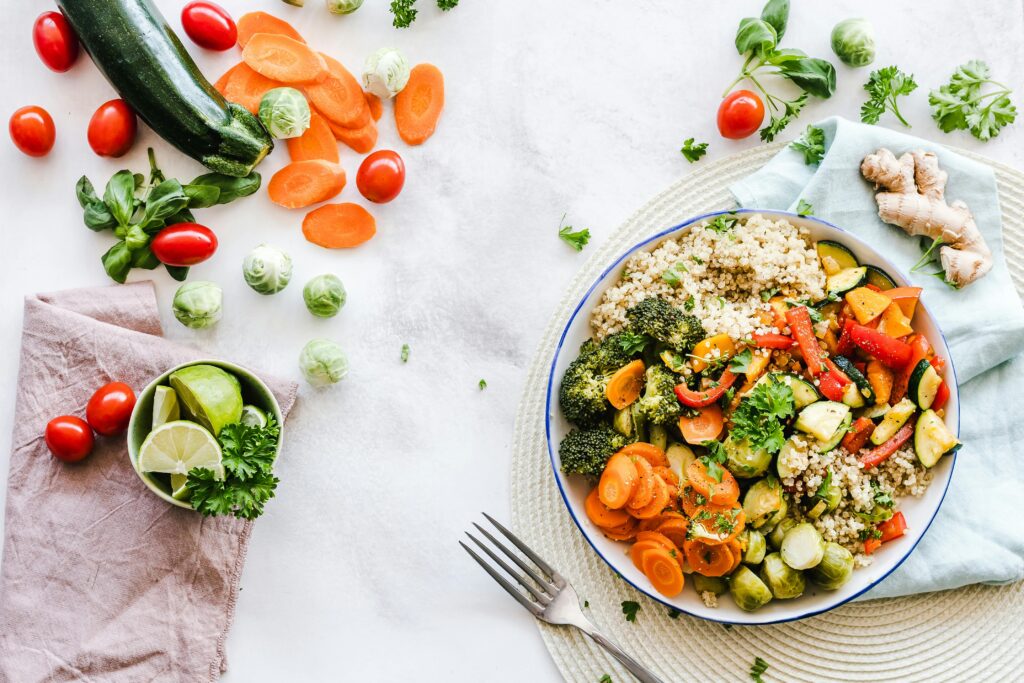How to Stay Healthy During Ramadan 2025: Essential Tips for a Balanced Fast
Ramadan is a sacred month of fasting, reflection, and spiritual growth for Muslims around the world. While the focus is often on spiritual well-being, it’s equally important to prioritize physical health during this time. In this blog, we’ll explore practical tips on how to stay healthy during Ramadan 2025, ensuring you can make the most of this blessed month while maintaining your energy and well-being.
Why Staying Healthy During Ramadan is Important
Fasting from dawn to sunset can be physically demanding, especially if you don’t plan your meals and activities wisely. By following these stay healthy in Ramadan tips, you can avoid common issues like dehydration, fatigue, and digestive problems, and instead feel energized and focused throughout the month.
Top Tips to Stay Healthy During Ramadan 2025
1. Hydrate, Hydrate, Hydrate
Staying hydrated is one of the most important aspects of staying healthy during Ramadan. During non-fasting hours, aim to drink plenty of water. Avoid sugary drinks and caffeine, as they are main lead to dehydration. A good rule of thumb is to drink at least 8 glasses of water between Iftar and Suhoor.
2. Eat Balanced Meals at Iftar and Suhoor

Your meals during Ramadan should be nutritious and well-balanced. For Iftar, break your fast with dates and water, followed by a meal that includes:
- Complex carbohydrates (brown rice, whole grains)
- Lean proteins (chicken, fish, legumes)
- Healthy Nuts (avocado, nuts, olive oil)
- Fresh fruits and vegetables
For Suhoor, focus on slow-digesting foods like oats, eggs, and yogurt to keep you full and energized throughout the day.
3. Avoid Overeating
It’s easy to overindulge during Iftar, but overeating can lead to discomfort and weight gain. Practice portion control and eat mindfully. Remember, the Prophet Muhammad (PBUH) advised filling one-third of your stomach with food, one-third with water, and leaving one-third empty.
4. Incorporate Light Exercise
While intense workouts may be challenging during fasting hours, light exercises like walking, stretching, or yoga can help you stay healthy during Ramadan. Aim to exercise after Iftar or before Suhoor when your energy levels are higher.
5. Get Enough Sleep
Sleep is crucial for maintaining your energy and focus during Ramadan. Try to establish a consistent sleep schedule, balancing Taraweeh prayers and Suhoor preparations. Short naps during the day can also help you recharge.
6. Limit Fried and Sugary Foods
While it’s tempting to indulge in fried snacks and sweets during Ramadan, these can lead to energy crashes and weight gain. Opt for healthier alternatives like baked samosas, fruit salads, or homemade smoothies.
7. Listen to Your Body
Everyone’s body is different, so it’s important to listen to yours. If you feel unwell or overly fatigued, consider consulting a healthcare professional. Fasting is not obligatory for those who are ill, pregnant, or have certain medical conditions.
How to Stay Healthy During Ramadan: A Daily Routine

Here’s a sample daily routine to help you stay healthy in Ramadan:
- Suhoor: Eat a balanced meal and hydrate well.
- Morning: Engage in light activities or work.
- Afternoon: Rest or take a short nap.
- Iftar: Break your fast time with dates and water, followed by a nutritious meal.
- Evening: Perform Taraweeh prayers and engage in light exercise.
- Night: Sleep early to ensure adequate rest.
Common Mistakes you should Avoid During Ramadan
- Skipping Suhoor: This can lead to low energy levels and dehydration.
- Overeating at Iftar: This can cause digestive issues and weight gain.
- Neglecting hydration: Dehydration can lead to headaches and fatigue.
- Consuming too much caffeine can disrupt your sleep and cause dehydration.
Final Thoughts: Stay Healthy in Ramadan 2025
Ramadan is a time for spiritual growth, but it’s also an opportunity to adopt healthier habits. By following these tips on how to stay healthy during Ramadan, you can ensure a balanced and fulfilling fasting experience. Remember, the key is to plan ahead, eat mindfully, and listen to your body.





